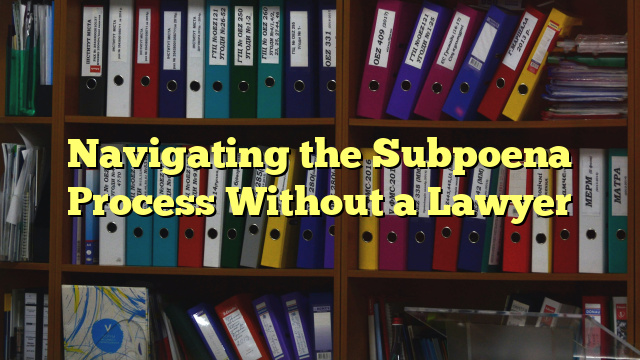Table of Contents
- Who can issue a subpoena in California?
- What is required for a subpoena in California?
- How do I file a subpoena in CA?
- How much does a subpoena cost in California?
Who can issue a subpoena in California?
In the state of California, a subpoena can be issued by a court, a public official empowered to administer oaths, or an attorney admitted to practice in California.
What is required for a subpoena in California?
A subpoena in California requires a caption containing the names of the court and parties in the case, the title of the action, and the designation of the action. It must also include the name and address of the person to be served, the name and address of the person requesting the subpoena, and the date and time at which the person is to appear, if applicable. The form must also indicate the date and manner of service, and the date, time, and place of the hearing.
How do I file a subpoena in CA?
A subpoena in California can be filed by registering it with the court clerk. The court clerk will assign a case number to the subpoena and the person filing must pay a fee to the court clerk. Once the subpoena is filed, it must be served on the person designated in the order, who is referred to as the “subpoenaed party.”
How much does a subpoena cost in California?
The cost of a subpoena in California varies depending on the court in which the subpoena is to be served and the type of subpoena. Generally, the cost of a subpoena to appear in court is $50, and the cost of a subpoena duces tecum (requesting documents) is $25. However, some courts may charge additional fees.


While seeking legal advice is important, people should be aware of their own rights to obtain a subpoena.
Subpoenas can be tricky to navigate without a lawyer, but with careful preparation it can be done. Remember: less is sometimes more.
The right guidance can help successfully navigate the subpoena process.
Great article, although I feel like there may be a situation where having a lawyer on hand is beneficial. For instance, if there is an issue of privilege or confidentiality that needs to be considered. Additionally, understanding the local court rules can be tricky without legal counsel.
The article provides important information on how to manage the subpoena process without needing to engage an expensive lawyer. It’s a helpful guide to help individuals understand the complexities of the law to protect their rights.